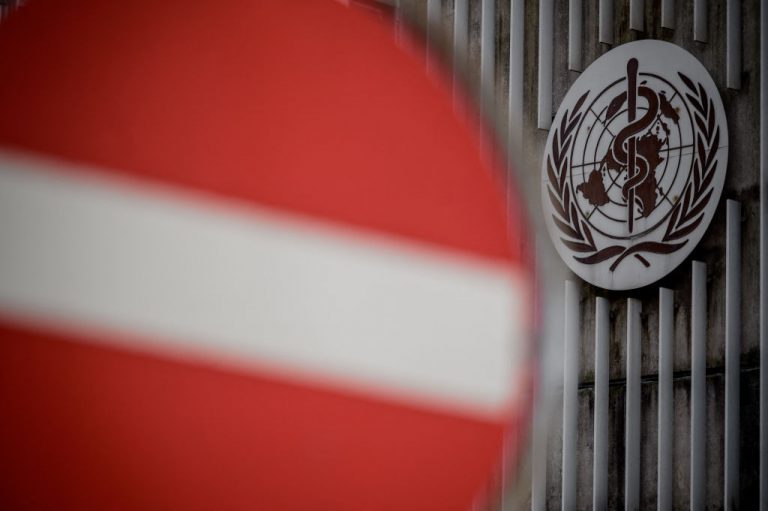The World Health Organization (WHO) will advance a multi-year plan to transform itself into a body that governs and overrides the national laws of signatory member states during a declared pandemic situation to the next stage in July.
Although this scenario, often colloquially described as the WHO’s “pandemic treaty,” has circulated with more and more vigor across conservative and freedom-oriented social media in recent weeks, the story is far from being a “conspiracy theory.”
‘The World Together’
Vision Times originally reported on the early machinations of the WHO’s pandemic treaty in late November of 2021 after the Organization convened a Special Session of the World Health Assembly (WHA) for only the second time in its history.
The Nov. 29 Special Session was prearranged—after the WHA met for its annual meeting in May of 2021—for the proclaimed purposes of “developing a WHO convention, agreement or other international instrument” on “pandemic preparedness and response.”
The catchphrase “pandemic preparedness and response” was heavily utilized in the Session’s pandemic treaty documentation, and is still utilized on the WHO website through today.
Success
You are now signed up for our newsletter
Success
Check your email to complete sign up
Documents for the Special Session published on the WHO website at the time by the Member States Working Group (WGPR) often used winding and ambiguous verbiage to state the ultimate purpose of the Session was the creation of what it called a “New Instrument.”
The WGPR sought the New Instrument for the purpose of implementing “structural solutions to promote a whole-of-government and whole-of-society approach” to serve as a vehicle to harmonize the so-called “pandemic preparedness and response.”
But both most importantly and most concerningly, the documents sought that the New Instrument should be “legally binding” on member states who chose to ratify the agreement.
The document elucidates, “…this legally binding status offers the potential for greater sustained attention, both political and normative, to the critical issue of a pandemic preparedness and response, than a non-binding act.”
On Dec. 1, 2021, the Special Session completed and the WHA announced the deployment of the scheme it coined “The World Together.”
Although what exactly The World Together plan will entail is still both unclear and under development, the documentation not only speaks of the creation of an “intergovernmental negotiating body” (INB), but emphasizes “the need for a comprehensive and coherent approach to strengthen the global health architecture.”
The plan again doubled down on verbiage involving “the commitment of Member States” and the implementation of “a whole-of-government and whole-of-society approach” to “pandemic preparedness and response.”
While The World Together plan is not scheduled to be submitted by the INB for formal consideration until the 77th incarnation of the WHA—2021 being the 74th—an early deadline was tentatively for August of this year where the Body would unveil a draft operational methodology.
The August deadline would be preceded by a first round of INB meetings beginning in February.
Quickening Pace
The WHO has launched an official website for the INB, which now includes video of a first round of “public hearings” held in April, with a second salvo set for June 16 and 17.
In documents released resulting from a first set of meetings spanning February to April, a Timeline showed that the date for the second formal meeting of the INB and a working draft of The World Together had been firmed and bumped slightly forward to the week of July 18.
The biggest names
Many sounding the alarm on the pandemic treaty and its potential impact on the national sovereignty of signatory member states have voiced concerns that entities such as Bill Gates and various other private entities are to be directly involved in the decision making process on a schematic that will be legally binding on national law.
The concerns are far from without merit.
The INB’s website states that those who can participate in the public hearings are limited to “interested stakeholders,” defined as “non-State actors with a demonstrable interest in pandemic preparedness and responses.”
The site states that the first round of public hearings revolved around the “guiding question” of, “What substantive elements do you think should be included in a new international instrument on pandemic preparedness and response?”
The WHO provides an extensive list of classifications of organizations the “interested stakeholders” moniker may apply to, including, but not limited to, “private sector organizations” and “philanthropic organizations.”
But in a more exhaustive document published on the WHO’s website, “relevant stakeholders” clearly includes many of the world’s biggest names, broken down into four categories:
- The United Nations and “other intergovernmental organizations in effective relations with WHO,” including, but not limited to:
- International Atomic Energy Agency
- Universal Postal Union
- League of Arab States
- World Organisation for Animal Health
- World Meteorological Organization
- “Observers,” including, but not limited to:
- Holy See
- Palestine
- Gavi, the Vaccine Alliance
- The Red Cross
- “Non-State actors in official relations with WHO,” a list extensive enough that it required a separate a 13-page document posted elsewhere on the WHO’s website, including, but not limited to:
- The Aga Khan Foundation
- Bill & Melinda Gates Foundation
- Clinton Health Access Initiative
- Oxfam
- The Rockefeller Foundation
- The Wellcome Trust
- “Other stakeholders,” including, but again not limited to:
- Asian Development Bank
- Council of Europe
- Inter-American Development Bank
- International Monetary Fund
- World Bank Group
- World Trade Organization
The updated Timeline released from the first February and March INB sessions, which were adjourned, stated that the Body would resume deliberations starting June 6, while the second session is scheduled for the week of July 18.
Meanwhile, the 75th iteration of the World Health Assembly will be conducted between May 22 and 28.
















